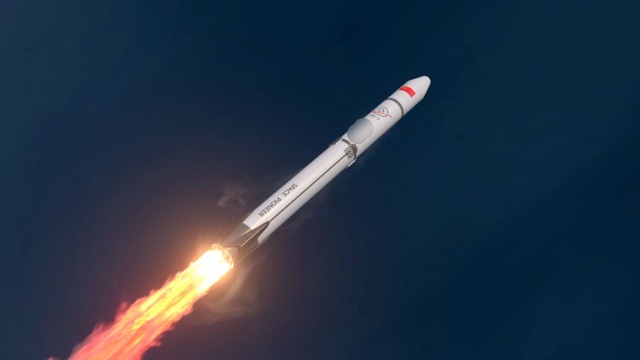China’s private companies’ space race
The launch of the CERES-1 Y2 commercial rocket last December marked an important milestone for private space companies in China. This is the second time rocket developer Galactic Energy – a Beijing-based aerospace company has put a satellite into orbit.
The successive successes are gradually making Galactic Energy the first company to commercialize rocket launches, showing the potential of China’s commercial satellite launch missions in the future.

Driven by policies, capital and technology, China’s commercial aerospace industry has enjoyed strong momentum over the past seven years and is estimated to become a multi-billion “dollar” market by 2025.
Incentives from national policies
2021 is the 7th year since China officially opened its doors for social capital to participate in the construction of civil aviation infrastructure. Many provincial plans also specifically call for increased construction of international air launch sites.
In the past, China has implemented a series of policies to increase the purchase of spacecraft, improve the corresponding infrastructure, and strengthen the military-civilian combination to support the development of the aviation industry. commercial universe in the long run.
As a result, China’s commercial aerospace industry grew exponentially from 2015 to 2020 – the market size increased from 376.4 billion yuan ($59.09 billion) to 1, 02 trillion yuan ($160.13 billion). It is estimated that the size of this industry in the country of billions of people will reach 210 billion USD by 2025. In 2020, the global space economy generates 371 billion USD in revenue, 74% of which comes from satellite services, ground equipment and manufacturing industry.
Competition is getting tougher
From January to September last year, 1,178 new satellites were launched into orbit out of which in 2020 this number is 1,283. Among them, 835 satellites are owned by the US. China currently has 431 satellites in space, both commercial and state-owned, ranking second in total satellite ownership by a country.
However, with the growing number of satellite Internet building plans by SpaceX’s Starlink, Amazon’s Kuiper and OneWeb, and many others, the race for satellite networks is becoming more and more fierce.

Elon Musk and Starlink (Photo: Internet).
After billionaire Elon Musk’s SpaceX continuously launched a series of satellites into orbit, China submitted a dossier in September 2020 to build two low-orbit satellite clusters with a total of 12,922 satellites to compete. . Last August, two test satellites of “merged” communications technology with the abbreviation RSW were put into orbit as the first step of this plan.
Established in April 2021, China Satellite Network Corporation is the main unit in charge. The company operates independently of China’s two largest space agencies, providing a huge incentive for private space companies.
Future ahead
According to one expert, the limited satellite launch sites and the attraction of investment capital are the limitations that make it difficult for the private space sector in China.
Liu Baiqi, CEO and founder of aerospace company Galactic Energy, said the ability to achieve continuous and stable rocket launches, and large-scale, low-cost rocket production was the key to making it possible. commercial rocket industrialization in China.
Galactic Energy is also promoting the research and development of a reusable heavy-duty aircraft carrier for its maiden flight later this year or early 2023.
According to statistics, from 2015 to 2020, more than 10 private rocket companies have been established all over China. In recent years, Chinese aerospace startups have attracted a huge amount of investment.
Last month, Space Pioneer announced it had received “major strategic funding” to realize its goal of launching a spacecraft into orbit this year.

Perhaps the most notable is the $200 million that Galactic Energy received in January. This investment eclipsed all previous record numbers in China. Galactic Energy said it will use the money for its upcoming rocket launches.
Meanwhile, Deep Blue Aerospace also received nearly 32 million USD in investment in mid-January. Another company newly established in 2020 is Orienspace also successfully raised capital with the amount of 47 million USD. . Last month, reusable rocket engine maker Jiuzhou Yunjian received at least $15.7 million in new funding from various investors.
According to an industry expert, these are all good signs for private space companies in particular and the industry in general in China.
Source: SpaceNews, CGTN
By Business and Marketing
at Blogtuan.info – Source: cafebiz.vn – Read the original article here



